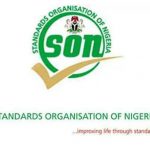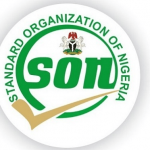The Federal Government of Nigeria has officially adopted 88 international standards for Compressed Natural Gas (CNG) products, a strategic initiative designed to strengthen the ongoing rollout of CNG systems nationwide. This move underscores the government’s commitment to ensuring that vehicles operating on CNG adhere to rigorous safety and quality benchmarks.
Dr. Ifeanyi Okeke, the Director-General of the Standard Organisation of Nigeria (SON), made this announcement in a statement issued on Sunday during the World Standards Day celebration in Abuja. This year’s theme, “Our Shared Vision for a Better World: Standards for Changing the Climate,” highlights the significance of standards in driving industrialization and fostering economic growth.
As Nigeria pivots towards cleaner energy alternatives, the transition to CNG vehicles has raised concerns among stakeholders, particularly regarding potential safety risks. Reports of explosions and other incidents linked to poorly installed or maintained CNG systems have amplified fears about the adequacy of safety regulations. These incidents have sparked discussions on the necessity for more stringent oversight to prevent accidents and ensure public safety.
Addressing these concerns, Okeke emphasized that the newly adopted international standards will play a crucial role in mitigating risks associated with CNG usage. “Standards are vital in achieving these goals and in facilitating the development of renewable energy, energy efficiency, and sustainable practices,” he stated. He assured stakeholders that the government’s approach prioritizes safety while supporting a broader transition to sustainable energy solutions.
In line with President Bola Ahmed Tinubu’s agenda, SON is also actively participating in developing a Natural Gas Vehicles Monitoring System. This initiative aims to oversee the implementation of CNG systems in vehicles, ensuring that high-quality products are utilized across Nigeria. Okeke highlighted the organization’s efforts to conduct factory visits to manufacturing facilities in China and India to certify CNG components and kits, thereby reinforcing the commitment to safety and quality assurance.
“Through these global collaborations, we are prioritizing safety and quality assurance. As we navigate the challenges of climate change, we must acknowledge that standards are essential for successfully implementing mitigation strategies,” Okeke added.
The SON’s dedication extends beyond safety; it seeks to foster consumer confidence and enhance the global competitiveness of Nigerian products. By aligning with international standards, Nigeria aims to improve its standing in the global market while ensuring that local products meet international safety and quality expectations.
The SON’s commitment to adopting international standards reflects a broader vision of sustainable development. By aligning its activities with the Sustainable Development Goals (SDGs), the organization aims to contribute to peace, prosperity, and the welfare of people and the planet. “International Standards offer practical solutions that we must all embrace to become part of the solution, as they form the backbone of global progress,” Okeke concluded.
In summary, Nigeria’s adoption of international standards for CNG is a pivotal step toward enhancing safety, quality, and sustainability in the energy sector. As the country strives to transition to cleaner energy alternatives, the focus on rigorous standards will play a critical role in ensuring public safety and promoting economic growth through the effective implementation of CNG systems across the nation.










